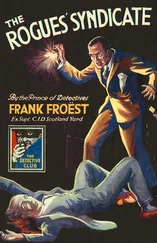Clifford Stone, intrepid man of action.
On the afterdeck of the Thorvaldson the submersible was waiting to transport him to the seabed, nine hundred metres below. Of course he should have sent the robot down first on a recce. That's what Jean-Jacques Alban and all the others had been urging him to do. Victor was equipped with fantastic cameras, a highly sensitive articulated arm and every conceivable instrument necessary for the highspeed evaluation of data. But going down there himself would make more of an impression. In any case, Stone disagreed with Alban. He'd spoken to Gerhard Bohrmann on the Sonne about travelling on manned submersibles. Bohrmann had explored the Oregon seabed in Alvin , the legendary DSV: 'I've seen thousands of video images – footage recorded by robots, all of it very impressive – but actually sitting in the submersible, being-down there on the seabed, seeing it all in 3-D, I never thought it could be like that. It beats anything you've ever seen.' Besides, he'd added, there was no real substitute for the senses and instincts of a human.
Stone smiled grimly. It was his turn now. The submersible had been easy to get hold of, thanks to his excellent contacts. It was a DR 1002, a Deep Rover, made by the American firm Deep Ocean Engineering, a small, light boat, belonging to the new generation of submersibles. Its transparent spherical hull was mounted on bulky battery pods from which a pair of robotic arms emerged. Inside, there were two comfortable seats with controls to each side. As he approached the Deep Rover he felt pleased with his choice. The vehicle was attached to the boom by a cable, and had been jacked up to allow just enough room for them to crawl in through the bottom hatch. The pilot, Eddie, a stocky ex-navy aviator, was already inside, checking the instruments. There was the usual bustle before the launch of a submersible, with crew, technicians and scientists milling on the deck. Stone spotted Alban and called him over. 'Where's the photographer?' he shouted. 'And the guy with the video camera?'
'No idea,' said Alban. 'I saw the cameraman prowling around earlier.'
'Well, tell him to stop prowling and get here,' Stone snapped. 'We're not going under without this being filmed.'
Alban frowned and looked out to sea. It was a misty day with poor visibility.
'It smells bad,' he said.
'That's the methane.'
'It's getting worse.'
It was true. A sulphur-like odour hung over the sea. A good deal of gas must have escaped for the air to smell that bad. It didn't bode well.
'It'll sort itself out,' said Stone.
'I think you should postpone the dive.'
'Rubbish!' Stone glanced around. 'Where's that bloody photographer?'
'It's too risky – the barometer's plummeting. A storm's on its way.'
'We're going, and that's that.'
'Stone, don't be a fool. And, anyway, what's the point?'
'The point,' Stone said, in a hectoring tone, 'is to get a better, more accurate look at the problem. For God's sake, Jean, nothing'll get in the way of the Rover, least of all a few worms. It can descend to a depth of four thousand metres-'
'At four thousand metres the hull will implode,' Alban corrected him. 'It's cleared for a maximum of a thousand.'
'I know the facts. And we're only going nine hundred metres. What could possibly go wrong?'
'I don't know. But the seabed's changed. The water's filling with gas and the processor won't show up on sonar. God only knows what's going on down there.'
'Maybe there's been a slide. Or a partial collapse. If we're unlucky, there'll have been some subsidence. It happens, you know.'
'I guess.'
'So, what's the problem?'
'The problem,' said Alban, losing his temper, 'is that a robot could do the job for you. But – oh, no – you have to play the hero.'
Stone pointed at his eyes. 'You see these? They're still the best way of working out what's wrong. That's how problems are solved. You take a good look, then you fix them.'
'Fine.'
'So when are we going down?' Stone glanced at the time. 'OK, another half-hour. No, twenty minutes.' He waved at Eddie, who raised his hand and turned back to the controls. Stone grinned. 'What are you worried about? We've got the best pilot around. I'll even steer the thing myself, if I have to.'
Alban didn't reply.
'I'm going to take one last look at the dive plan. I'll be in my cabin if you need me. And do me a favour, Jean, find those bloody camera people. Anyone would think they'd fallen overboard.'
Trondheim, Norway
Could he really be out of aftershave? Impossible. Sigur Johanson kept a stockpile of life's little luxuries. He never ran out of wine or grooming products. Surely he had another bottle of Kiton eau-de-toilette.
He went back to the bathroom and rummaged through the cabinet. He needed to get a move on. The helicopter was waiting at Statoil's research centre to transport him to his meeting with Karen Weaver. But for someone who cultivated dishevelment, packing was complicated: neat people never had to bother with deliberations about which shade of jacket clashed to just the right effect.
Hidden behind two tubs of styling wax he found what he was looking for. He put the bottle in his wash-bag, then squeezed it into his suitcase, with some poetry by Walt Whitman and a book about port, then let it click shut. It was an expensive bag of the kind popular at the beginning of the nineteenth century among rich Londoners, who used them for weekend jaunts. The leather straps had been sewn by hand.
THE FIFTH DAY!
Had he packed the CD? All the material supporting his incredible idea about the plan was on it. Perhaps there'd be a chance to discuss it with the journalist. There it was, buried under a pile of shirts and socks.
He left his house in Kirkegata Street with a spring in his step, and crossed the road to his jeep. For some reason he'd been raring to go since first thing that morning. There was something almost hysterical about his energy. Before he started the engine he took a last glance at the house.
Suddenly he realised that he was trying to distract himself. His hyperactivity was an attempt to ward off thought, like whistling in the dark. His hand hovered beside the ignition as he gazed towards the city. A damp mist was hanging over Trondheim, blurring its contours. Even his house on the other side of the street seemed flatter than usual. It looked almost like a painting.
What happened to the things you loved?
He had spent many hours in front of Van Gogh's paintings, feeling an inner peace as though the artist hadn't suffered from suicidal depression. Nothing could destroy the painting's impression. Of course, a picture could be destroyed but as long as it existed, it was a definitive moment captured in paint. The sunflowers would never fade. The Langlois Bridge at Aries could never he bombed. The image of horror would always be horrifying; the image of beauty stayed beautiful forever. Even the portrait of the man with the angular features and the white bandage over his ear had something comfortingly constant about it. At least in the picture he couldn't become unhappier, he couldn't age. The man in the painting was eternal. In the end he'd triumphed over those who'd tortured him or couldn't understand him. With the help of a paintbrush and his genius he'd outwitted them all.
Johanson looked at his house. If only it were a picture, and I was in it too, he thought. But he didn't live in a picture, and his life wasn't a gallery where he could pace out his past in a matter of steps. His house by the lake would make a fabulous picture, then a study of his wife, and pictures of all the other women he'd known, the friends he'd had – and Tina Lund, of course. Tina, hand in hand with Kare Sverdrup, at peace for all time.
Читать дальше












